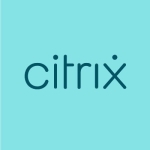
IT Administrator at a media company with 51-200 employees
Despite its minor issues, it's still the choice of most of the System Admins.
What is most valuable?
It is os-independent having a very thin architecture with which it can offer unparalleled security and reliability. Unlike most other hypervisors in the market, this don't need a general purpose operating system clearing the hazards of processor overhead, Antivirus and other OS processor consumption. Its this feature makes it prominent in the market of hypervisors.
What needs improvement?
Well, not much drawbacks actually. It serves the purpose it is designed for but still a very few little things that i have notices that can be called its drawbacks can be
1. Fault tolerance limits features available to virtual machines.
2. Automatic fallback of VMs currently not supported. This can be crucial in some environments.
Disclosure: I am a real user, and this review is based on my own experience and opinions.
Network Engineer at a retailer with 51-200 employees
VMware contributes a lot to virtualization with its better security and load management techniques.
Valuable Features:
• VMware Server is problem solving and cost saving.
• No need to buy hardware for every server required, just purchase one server and run multiple virtual machines on that single hardware.
• Offers testing solutions, provisioning solutions, and makes testing and rolling out installation easier.
• Easy to use technology and industry leader in virtualization technology.
Room for Improvement:
• The new Graphic User Interface is not of high quality.
• Web based User Interface means breaching compatibility with any principle of rich client applications, and means lots of bugs particular to every different browser
Other Advice:
A major issue with this server is that there are several free solutions offered. These are very appealing because of the virtualization rollout that cuts costs. If your intention is to decrease costs by using the VMware Server instead of several machines for several servers, the horsepower of the VMware hardware should be very powerful or every virtual machine will experience a mess.
Disclosure: I am a real user, and this review is based on my own experience and opinions.
Buyer's Guide
VMware vSphere
March 2025
Learn what your peers think about VMware vSphere. Get advice and tips from experienced pros sharing their opinions. Updated: March 2025.
849,190 professionals have used our research since 2012.
Network and Systems Administrator at Ishango-it
Good for virtualization, stable, and offers visibility into local hardware and workloads
Pros and Cons
- "VMware is good for virtualization."
- "The licensing costs are expensive and most of the important features require a license."
What is most valuable?
VMware is good for virtualization.
What needs improvement?
The licensing costs are expensive and most of the important features require a license.
For example, we would like to use DRS but there is an additional license for that. If it were free then it would be very helpful.
For how long have I used the solution?
I have been working with VMware vSphere for three years.
What do I think about the stability of the solution?
This product is very stable. It gives you good visibility of your hardware and the loads on it.
How are customer service and technical support?
Up to now, I haven't had a problem that caused me to contact the technical support team.
Which solution did I use previously and why did I switch?
I have experience with using Proxmox on a single host for about two months, with Hyper-V. This setup is only in a lab and not for production.
How was the initial setup?
For my initial setup, I am not using the entire functionality. We are using vMotion, storage, and clustering.
What other advice do I have?
I would rate this solution an eight out of ten.
Which deployment model are you using for this solution?
On-premises
Disclosure: I am a real user, and this review is based on my own experience and opinions.
Chief Information Officer at a tech services company with 201-500 employees
Helps to migrate from one storage vendor to another. Moves virtual machines off of arrays for maintenance or upgrade.
What is most valuable?
- Storage vMotion helps a lot when migrating from one storage vendor to another
- Storage vMotion migrates a virtual machine and its disk files from one data store to another while the virtual machine is running, with no down time.
- We can move virtual machines off of arrays for maintenance or upgrade
- We have the flexibility to optimize disks for performance or to transform disk types
How has it helped my organization?
We migrated our storage from IBM DS4700 & V7000 to VNX 5400 smoothly through storage vMotion.
What needs improvement?
I would like to see data recovery responsible for the virtual machine snapshot. It is not reliable as the parent snapshot gets corrupted and the whole corresponding snapshots collapse.
For how long have I used the solution?
We have been using this solution since 2009.
What do I think about the stability of the solution?
I did not encounter any issues with stability.
What do I think about the scalability of the solution?
I did not encounter any issues with scalability.
How was the initial setup?
The initial setup is straightforward. The only complexity appears with inherited network security policies.
What's my experience with pricing, setup cost, and licensing?
Pricing is a little bit high, but you have to value stability, scalability and the support level which are the most valuable parts of any solution.
What other advice do I have?
Choose VMware to gain the proper stability, scalability, and flexibility with premium support.
Disclosure: I am a real user, and this review is based on my own experience and opinions.
System Engineer at a tech vendor with 1,001-5,000 employees
We're able to manage our infrastructure of 12,000 users from a central location, although the web client, which uses HTML5, could be better.
What is most valuable?
We're able to centrally manage our infrastructure.
How has it helped my organization?
Its ability to tie into Veeam is really slick – that makes using Veeam really easy.
What needs improvement?
I'd like to see a different client. I know they are doing the HTML5 stuff with the web client, which has potential, but it could be better.
What do I think about the stability of the solution?
I think it’s great – we've never had any issues and we've been using it for a long time, about five years.
What do I think about the scalability of the solution?
I think it's really good, it's good for our size and for our future growth. Our company has around 12,000 users.
How are customer service and technical support?
I haven’t had a lot of interaction because I haven’t really needed to, but when I have they’ve been responsive and support has been good.
Which solution did I use previously and why did I switch?
No. Our parent company has Hyper-V and it’s no good.
How was the initial setup?
It’s pretty straightforward, not complex at all.
Which other solutions did I evaluate?
I would highlight compatibility with hosts, ease of use, consistency, reliability – all things that are better than Hyper-V.
What other advice do I have?
Peer reviews are significant, but you can tell the most from firsthand experience.
Disclosure: I am a real user, and this review is based on my own experience and opinions.
Virtualization Consultant at a tech services company with 1,001-5,000 employees
The web client could be improved. Features I like include: High Availability, DRS, SDRS, DvSwitch, NIOC.
Valuable Features:
High Availability, DRS, SDRS, DvSwitch, NIOC
Improvements to My Organization:
Better management of the virtual infrastructure
Room for Improvement:
Web Client, SSO
Use of Solution:
1.5 years
Deployment Issues:
No
Stability Issues:
No
Scalability Issues:
Yes
Disclosure: My company has a business relationship with this vendor other than being a customer: We are a VMware partner in the Netherlands
Technical Architect at a tech company with 1,001-5,000 employees
VMware ESXi rocks
Valuable Features:
Brilliant hyper-visor with proven virtualization stack.
Room for Improvement:
You need to learn the internals of the system to really customize and reap all benefits.
Disclosure: I am a real user, and this review is based on my own experience and opinions.
IT Administrator at a media company with 51-200 employees
Fast and Reliable Virtualization Solution
Valuable Features:
It is one easy to install and manage vitualization technique. Its pretty fast also, compared to some other vitualization techniques. And that is because its has a very small amout of resource overhead. It lacks the server console which decreases its booting time.
Room for Improvement:
We can say its free but it's not. Free versions has limited capabilities and misses some very strong features. So in my opinion its not free. Other then that, it misses the console, which may be good from booting point of view, but from troubleshooting point of view, its bad. As it takes a lot more administrations skills to tackle problem without the proper control panes in the form of the console panel.
Disclosure: I am a real user, and this review is based on my own experience and opinions.
ESXi is certainly the best!
Buyer's Guide
Download our free VMware vSphere Report and get advice and tips from experienced pros
sharing their opinions.
Updated: March 2025
Product Categories
Server Virtualization SoftwarePopular Comparisons
Proxmox VE
Hyper-V
Oracle VM VirtualBox
Red Hat OpenShift
Nutanix AHV Virtualization
Oracle VM
Citrix XenServer
IBM PowerVM
XCP-ng virtualization platform
OpenVZ
ISPsystem VMmanager
Odin Virtuozzo Containers
Buyer's Guide
Download our free VMware vSphere Report and get advice and tips from experienced pros
sharing their opinions.
Quick Links
Learn More: Questions:
- VMware ESXi or VMware Workstation?
- What is the biggest difference between KVM and vSphere?
- VMware vs. Hyper-V - Which do you prefer?
- How does VMware ESXi compare to alternative virtualization solutions?
- VMware has been positioned in the Leaders Quadrant of Gartner’s Magic Quadrant for four years. Agree/Disagree? Why?
- Proxmox vs ESXi/vSphere: What is your experience?
- Oracle VM vs. latest VMWare?
- Which is the most suitable blade server for VMware ESXi?
- What do each of the VMware and Citrix products do?
- What is the biggest difference between Nutanix Acropolis and VMware vSphere?
















That's for sure @Kleegeek.